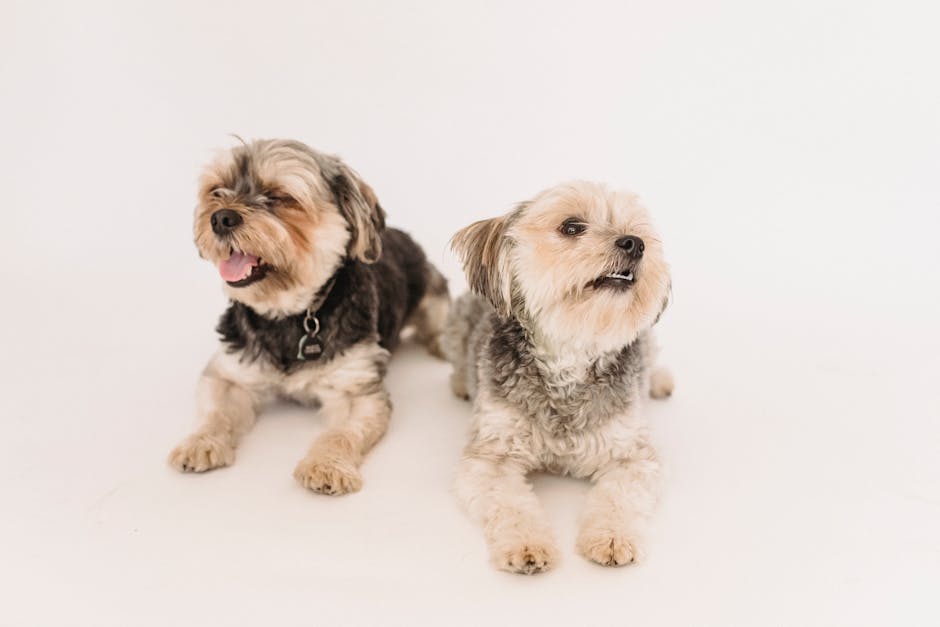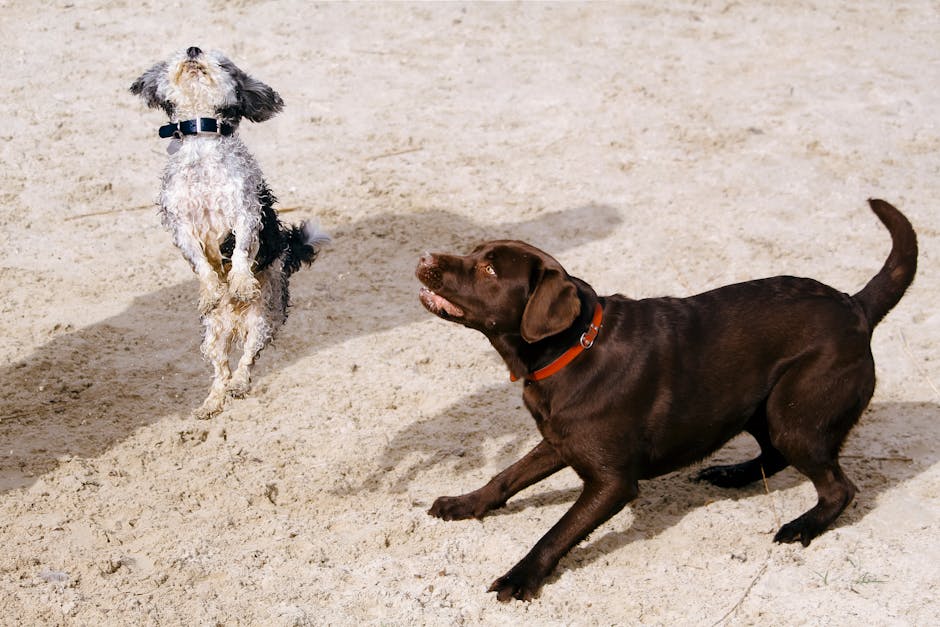The Best Collars for Small Breeds
Collars are an essential accessory for any dog owner, providing a means of identification, control, and style for their beloved pets. When it comes to small breeds, choosing the right collar is crucial to ensuring their safety and comfort. With a plethora of options available in the market, it can be overwhelming to find the perfect fit for your tiny companion. In this comprehensive guide, we will explore the best collars for small breeds, considering their unique needs and characteristics.
The Importance of Choosing the Right Collar
Before delving into the specifics of collars for small breeds, it is essential to understand why selecting the right collar is so important. Collars serve multiple purposes, including:
- Identification: Collars often contain tags with the dog’s name and contact information, ensuring they can be easily returned if lost.
- Control: Collars provide a point of attachment for leashes, allowing owners to guide and restrain their dogs when necessary.
- Safety: The right collar can prevent accidents, such as the dog slipping out of it or injuring themselves during walks.
- Fashion: Collars come in a variety of styles, colors, and materials, allowing owners to showcase their pet’s personality.
For small breeds, in particular, selecting a collar that fits properly, is lightweight, and does not cause discomfort is crucial. Small dogs are more delicate and sensitive than larger breeds, so the collar must be chosen with care to ensure their well-being.
Types of Collars for Small Breeds
When it comes to choosing a collar for your small dog, there are several types to consider. Each type has its own advantages and drawbacks, so it is essential to weigh your options carefully. Some of the most common types of collars for small breeds include:
1. Flat Collars
Flat collars are the most basic type of collar, consisting of a strip of material with a buckle or snap closure. They are lightweight and comfortable, making them suitable for small breeds. Flat collars are ideal for everyday wear and can be used for attaching identification tags and leashes.

By Sam Lion via Pexels
2. Martingale Collars
Martingale collars, also known as limited-slip collars, are designed to provide more control without choking the dog. They feature a loop design that tightens when pulled but does not constrict the dog’s neck. Martingale collars are ideal for small breeds that have a tendency to slip out of traditional collars.

By Alice Castro via Pexels
3. Harnesses
Harnesses are an excellent alternative to collars, especially for small breeds with delicate necks or respiratory issues. Harnesses distribute the pressure across the dog’s chest and back, reducing strain on the neck. They are ideal for dogs that pull on the leash or have tracheal problems.

By Arian Fernandez via Pexels
4. Breakaway Collars
Breakaway collars are designed with a safety feature that allows the collar to break open if the dog gets caught on something. This is particularly important for small breeds that are prone to exploring tight spaces or getting tangled in bushes. Breakaway collars prevent choking and ensure the dog’s safety.

By Thijs van der Weide via Pexels
Factors to Consider When Choosing a Collar
When selecting a collar for your small breed, there are several factors to consider to ensure you make the right choice:
1. Size
Small dogs come in various sizes, so it is essential to measure your pet’s neck accurately before purchasing a collar. A collar that is too tight can cause discomfort and restrict breathing, while a collar that is too loose may slip off. Select a collar that fits snugly but allows room for movement.
2. Material
Collars come in a range of materials, including nylon, leather, and fabric. Nylon collars are lightweight and easy to clean, while leather collars are durable and stylish. Fabric collars are comfortable and come in a variety of designs. Choose a material that suits your dog’s needs and preferences.
3. Safety Features
For small breeds, safety features such as reflective strips, breakaway closures, and ID tags are essential. Reflective strips increase visibility during night walks, breakaway closures prevent choking accidents, and ID tags ensure your dog can be easily identified if lost.
4. Comfort
Comfort is paramount when selecting a collar for your small breed. Look for collars with padded interiors, adjustable straps, and lightweight materials to ensure your dog’s comfort throughout the day. Avoid collars with rough edges or bulky buckles that may cause irritation.
5. Style
While functionality is crucial, style also plays a role in choosing a collar for your small breed. Consider your dog’s personality and choose a collar that reflects their unique character. Whether you prefer a simple and practical collar or a vibrant and eye-catching design, there are numerous options to suit your preferences.
Expert Opinions on Collars for Small Breeds
We reached out to several experts in the field of veterinary medicine and dog training to gather their insights on the best collars for small breeds. Dr. Sarah Johnson, a veterinarian specializing in small breeds, recommends harnesses for dogs with delicate necks to prevent injuries. “Harnesses provide better control and distribute the pressure evenly, reducing the risk of neck strain,” she explains.
On the other hand, dog trainer Mark Davis suggests martingale collars for small breeds that tend to slip out of traditional collars. “Martingale collars are a safe and effective way to prevent escape artists from wriggling out of their collars,” he advises.
Common Misconceptions About Collars for Small Breeds
There are several misconceptions surrounding collars for small breeds that can lead to confusion among dog owners. One common myth is that harnesses are only suitable for large breeds, while small dogs should wear traditional collars. In reality, harnesses can be beneficial for small breeds, providing comfort and control during walks.
Another misconception is that breakaway collars are only necessary for outdoor cats. While breakaway collars are commonly used for cats to prevent accidents, small dogs can also benefit from this safety feature, especially if they are prone to getting caught on objects.
Comparative Analysis of Different Collars
When comparing different types of collars for small breeds, it is essential to consider their pros and cons to make an informed decision:
Flat Collars vs. Martingale Collars
Flat collars are lightweight and comfortable for everyday wear, but they may not provide enough control for small breeds that tend to pull on the leash. Martingale collars offer more control without choking the dog, making them suitable for escape-prone dogs.
Harnesses vs. Breakaway Collars
Harnesses are ideal for small breeds with delicate necks or respiratory issues, as they distribute the pressure across the chest and back. Breakaway collars are essential for dogs that are prone to getting caught on objects, preventing choking accidents.
FAQs About Collars for Small Breeds
1. Can small breeds wear collars with heavy embellishments?
It is best to avoid collars with heavy embellishments for small breeds, as they can be uncomfortable and pose a choking hazard. Opt for lightweight and simple designs to ensure your dog’s safety and comfort.
2. How often should I replace my small breed’s collar?
Collars should be checked regularly for signs of wear and tear and replaced as needed. It is recommended to replace your dog’s collar every 6-12 months to ensure it remains secure and functional.
3. Are martingale collars safe for small breeds?
Martingale collars are safe for small breeds when used correctly and fitted properly. They provide more control without choking the dog, making them a suitable option for escape-prone dogs.
To Wrap Things Up
Choosing the right collar for your small breed is essential for their safety, comfort, and style. Whether you opt for a flat collar, martingale collar, harness, or breakaway collar, consider your dog’s specific needs and preferences to make an informed decision. Remember to prioritize safety features, comfort, and proper fit when selecting a collar for your beloved pet.
By understanding the importance of collars for small breeds and considering the various types available, you can ensure your dog stays safe and stylish on all your adventures together.




